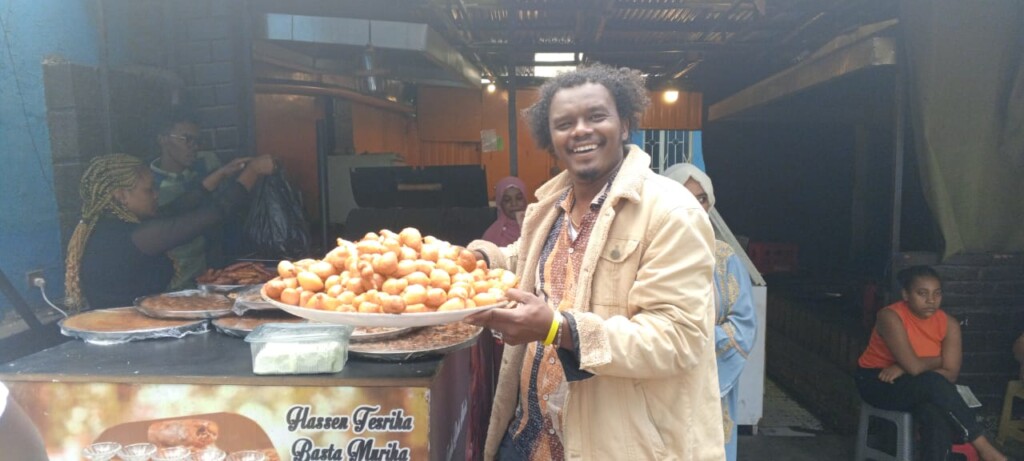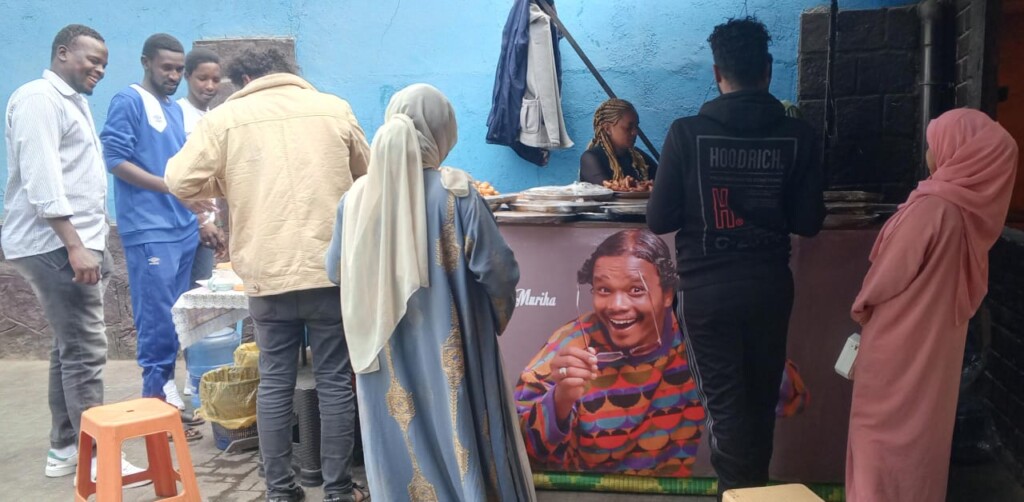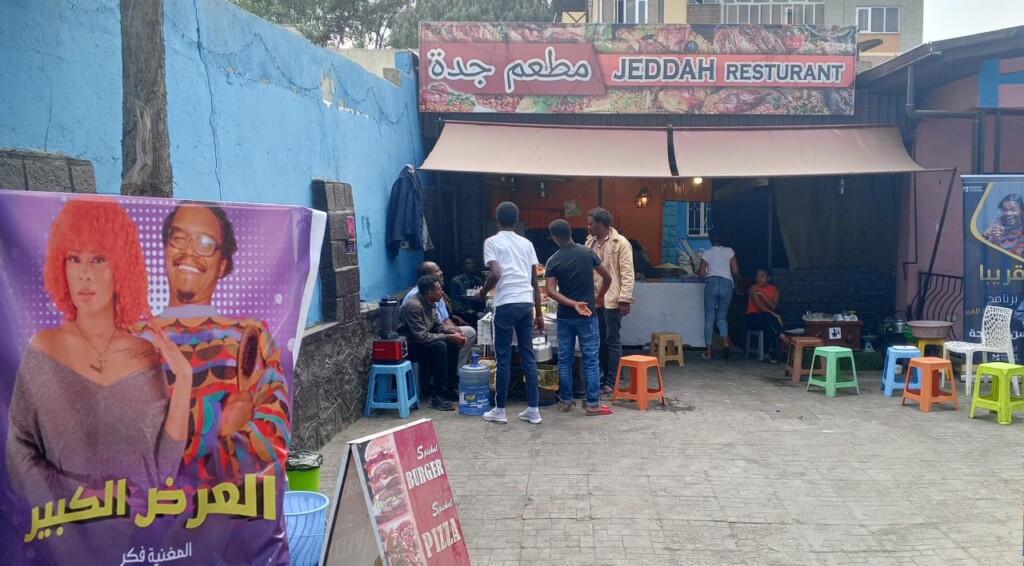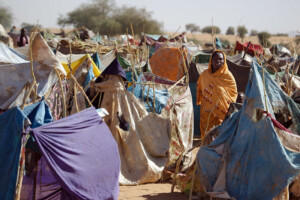Sudanese actor now selling pastries in Addis Ababa

Sudanese comedian Warrag Omar selling pastries in Addis Ababa, February 9 (Photo: Ashraf Abdelaziz / RD)
Sudanese comedian Warrag Omar, who arrived in the Ethiopian capital of Addis Ababa after fleeing his home in Khartoum, refused to sit idle and successfully began selling pastries in the city. His small restaurant has become a meeting place for both Sudanese refugees and Ethiopian artists.
Warrag Omar, famous among the Sudanese for the characters of Wad El Shorba (the soup boy) and Hasan Ta’reefa (Hasan penny) he embodied during his performances in Khartoum, last year fled Burri in north-east Khartoum when “the bullets at the beginning of this absurd war had punctured all the windows of the neighbourhood”.
Via East Nile in Khartoum North, Merowe in Northern State, he “finally reached Addis Ababa,” Omar told Radio Dabanga correspondent Ashraf Abdelaziz in an interview on Friday.
“When the war broke out on April 15, I was in Omdurman and managed to reach my family in Khartoum the same day. As we were living in Burri Imtidad Nasir, we were close to the General Command of the Sudanese Armed Forces (SAF), where the clashes were very severe from the first day. We thought that the matter would calm down after two or three days, but it continued for months. When the situation became really tight, with prolonged lack of water and food, power outages, and most of our money spent, I decided we’d move to the north, to Merowe.”

‘Basta’
Asked about ways of supporting his family in Merowe, he said that “we still did not imagine that the fighting would last much longer. I thought we would spend a week or so. When we discovered that we were facing a fait accompli, that the war would continue for a long time, I thought about ways of livelihood, because we were almost out of money.
“Of course, if you tell Sudanese that you plan to do something, they will immediately take your idea and implement it. That’s why I didn’t talk to anyone about my pastries project, I didn’t even talk to myself, but just started it.”
The actor definitely benefited from the advertisements he posted on his Facebook page about “super comfortable pastries” and “affectionate pastries which take care of your complete well-being”.
The people started coming, he said. “They didn’t come for the sweets, but for the entertainment, pictures, and stories. You know of course, when a famous man arrives at a village and sits with the villagers, they say ‘Let’s go, let’s join”.
Omar did not have any experience in making pastries, called basta in Sudan. “I only knew how to eat basta. I used to buy it from a factory and sell it. Only recently I learned to make basbousa myself.”

Addis Ababa
The actor began to lose his customers in Merowe when the purchasing power of the people further decreased. “A friend of mine living in Addis advised me to come and continue selling pastries there. I doubted at first, because I know that Ethiopians do not like sweets as much as we do, but thank God I went, posted advertisements, and things went well.
“I started in a small shop with seven chairs. People used to come in large numbers and could not find a place to sit. Later, I moved to the Jeddah Restaurant.”
With his livelihood “kind of secured”, Warrag Omar has set up a charity fund.
“One time at a very cold night, I found a Sudanese man sleeping in the street. It really upset me, and I rented a hotel room for him. From that time, I decided to act on the problems of the Sudanese, and created a fund called Yad be-Yad (hand in hand) in order to solve such simple problems. I really appreciate the help of many young Sudanese concerning this project.”
Meeting place
“Our shop is not only tea and pastries. It has become an extensive meeting place for Sudanese refugees here in the city,” Omar added. “In addition, many Ethiopian artists join us here, especially since the Ethiopian culture is close to ours.”
Before he left Sudan, Omar made awareness-raising sketches on the subject of the war. “I have no connection to any party, I am just someone who loves art, drama, and safety.”
The comedian is now thinking about working together with Ethiopian actors and present sketches or a performance on the necessity of stopping the war in his home country.
“If respected producers are available, we will be able to perform beautiful art. The artist’s mission is to spread peace and love,” he said. “Artists are stronger than politicians, than anything. The artist is the mirror of society, he mirrors the problems of the people, including the politicians themselves.”











 and then
and then